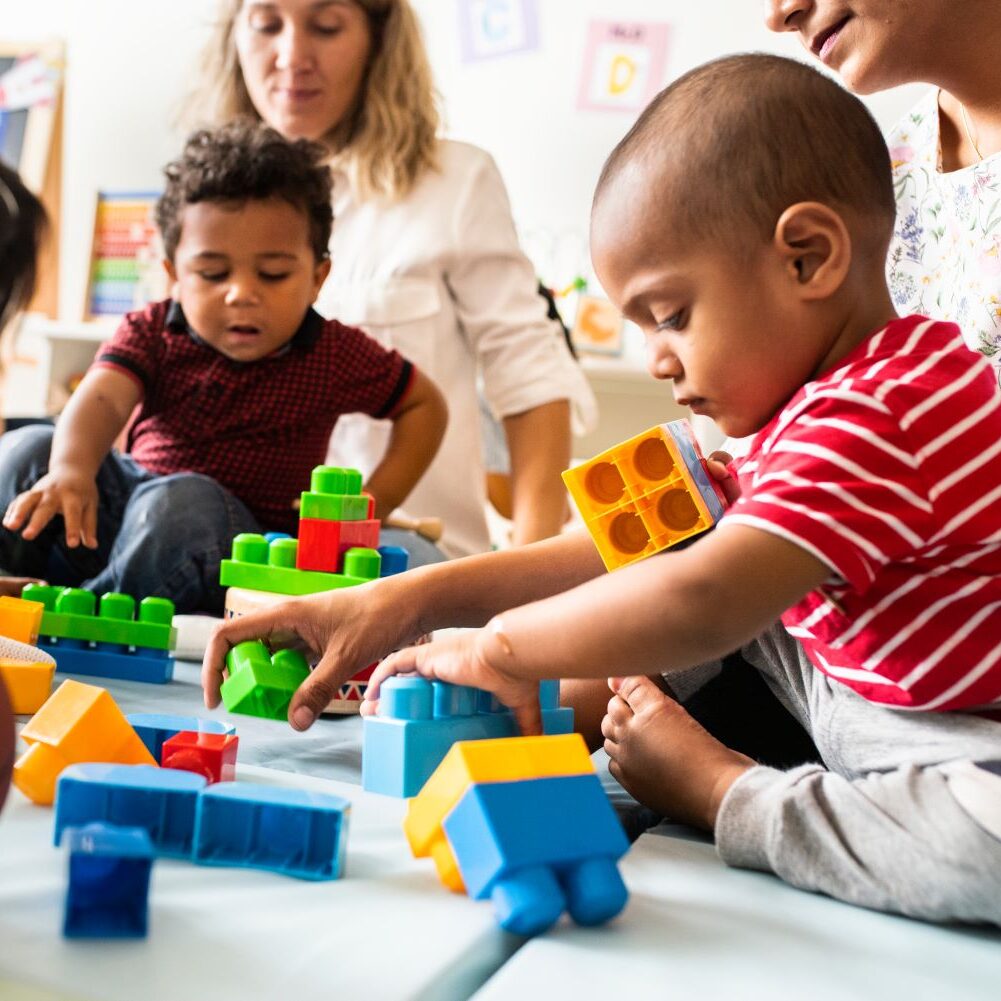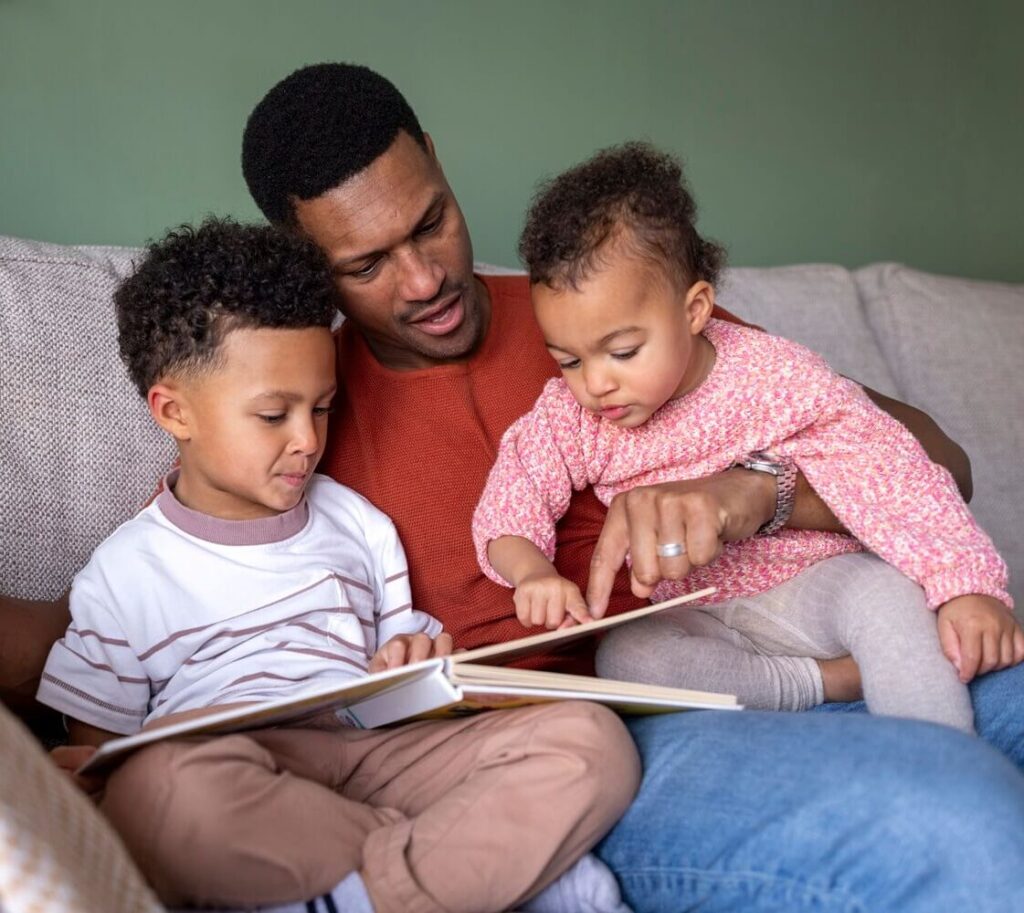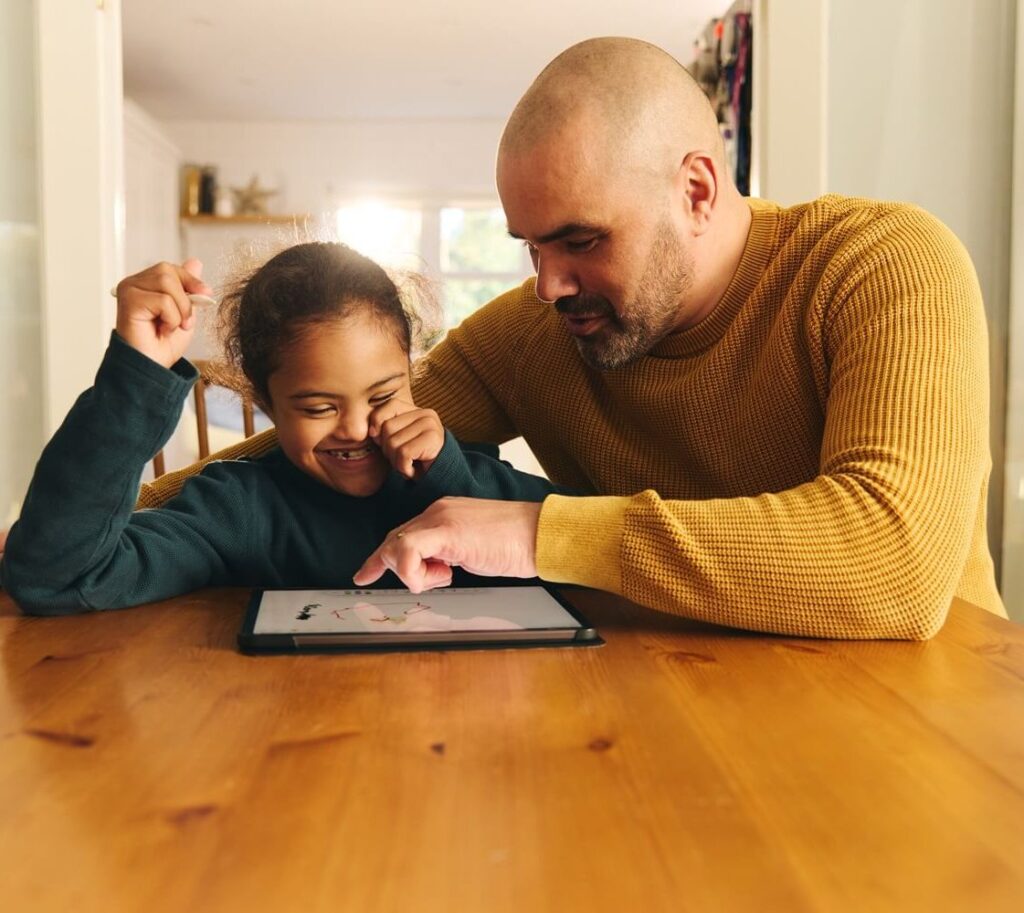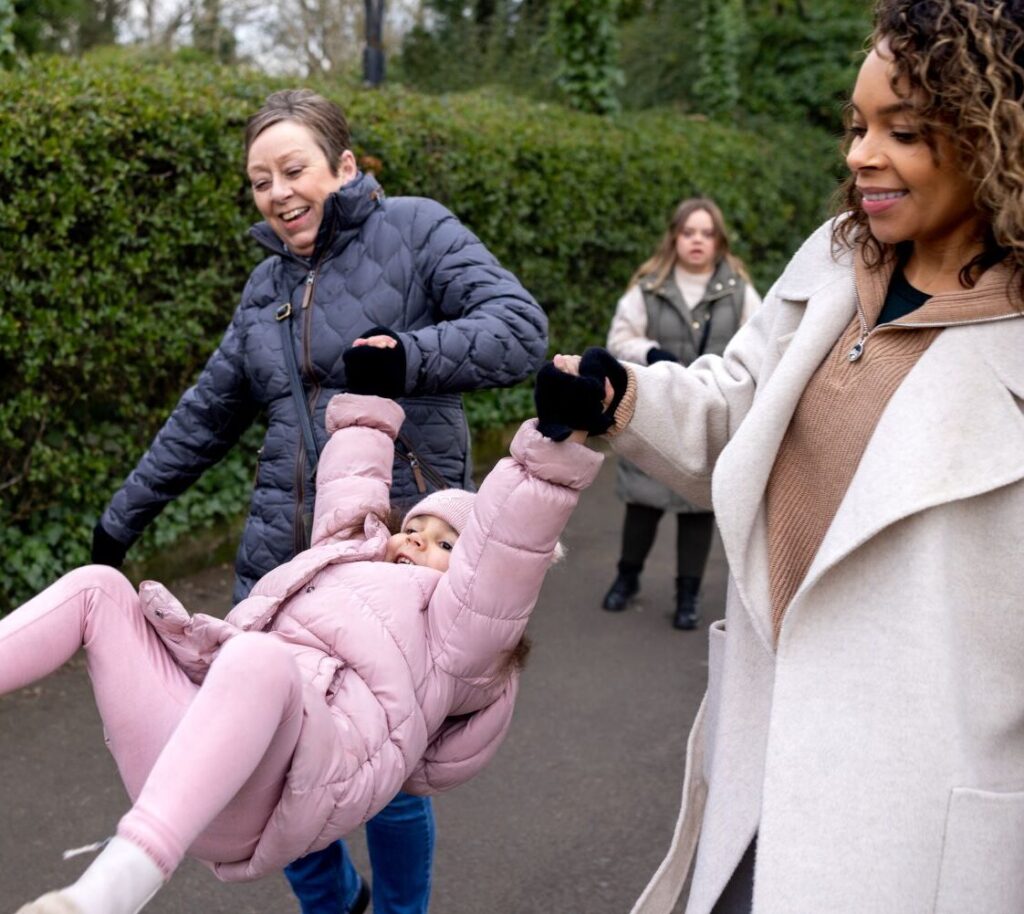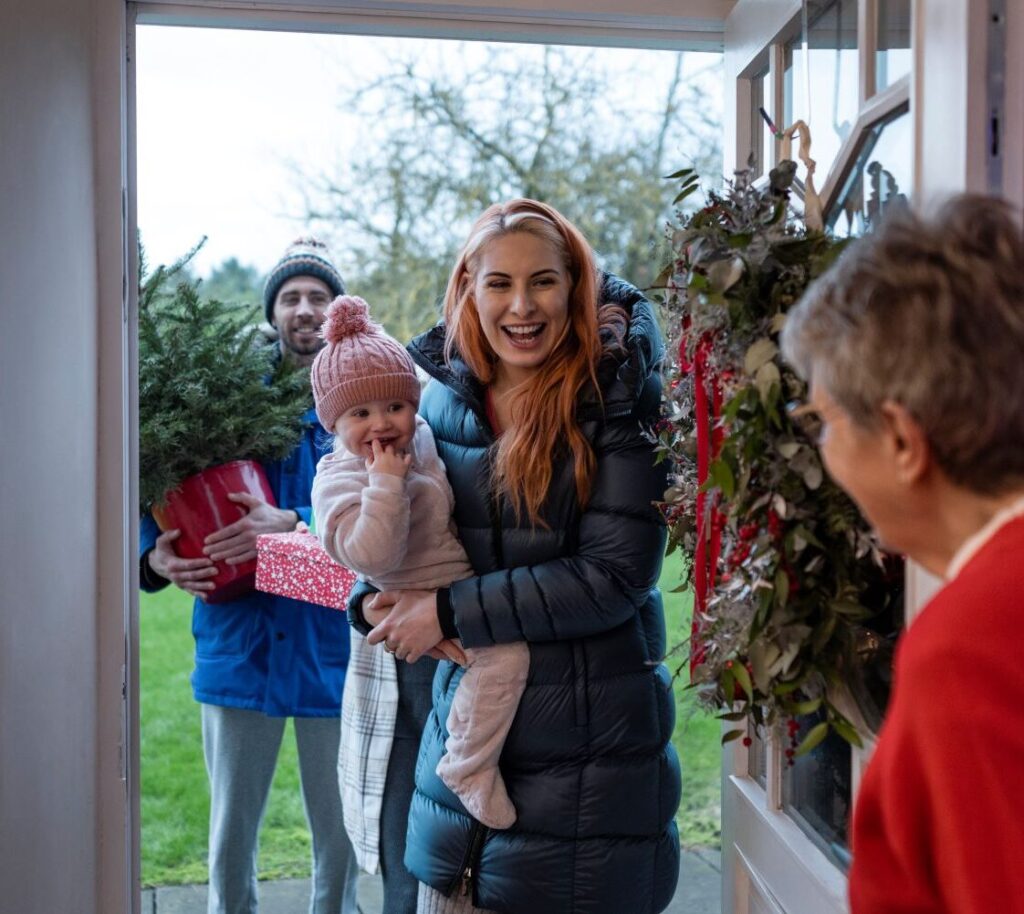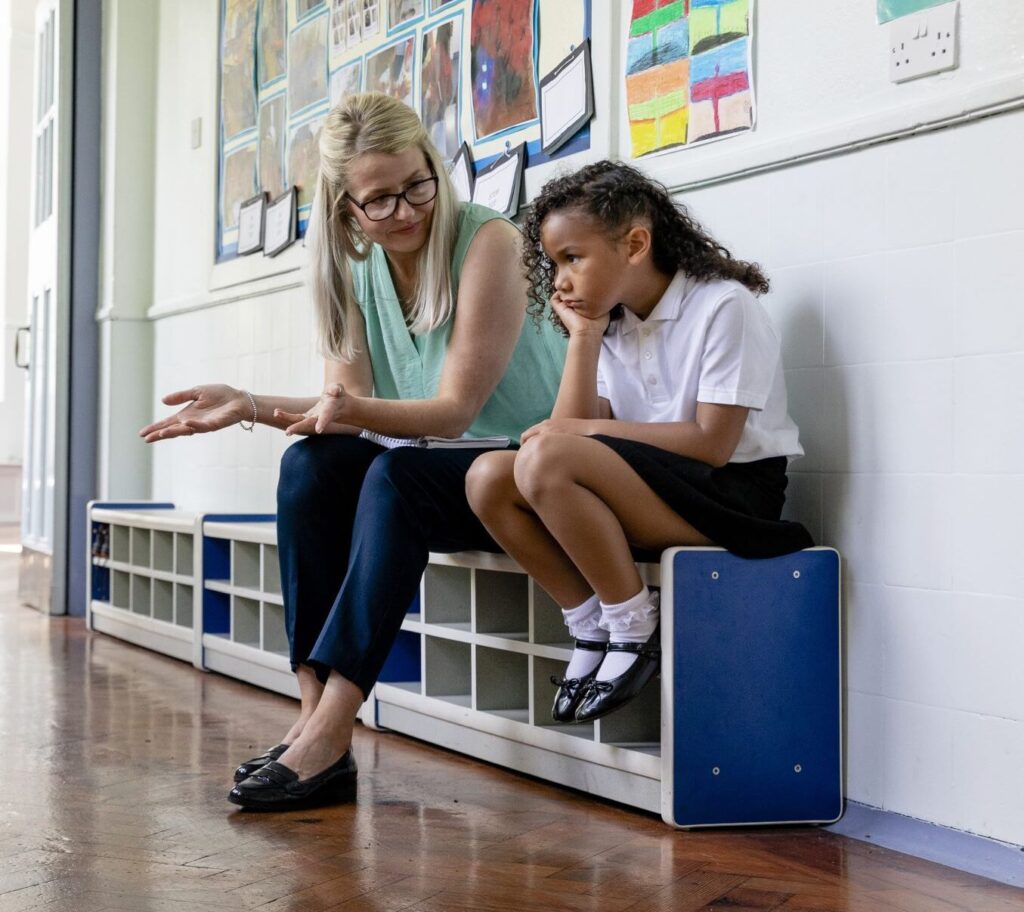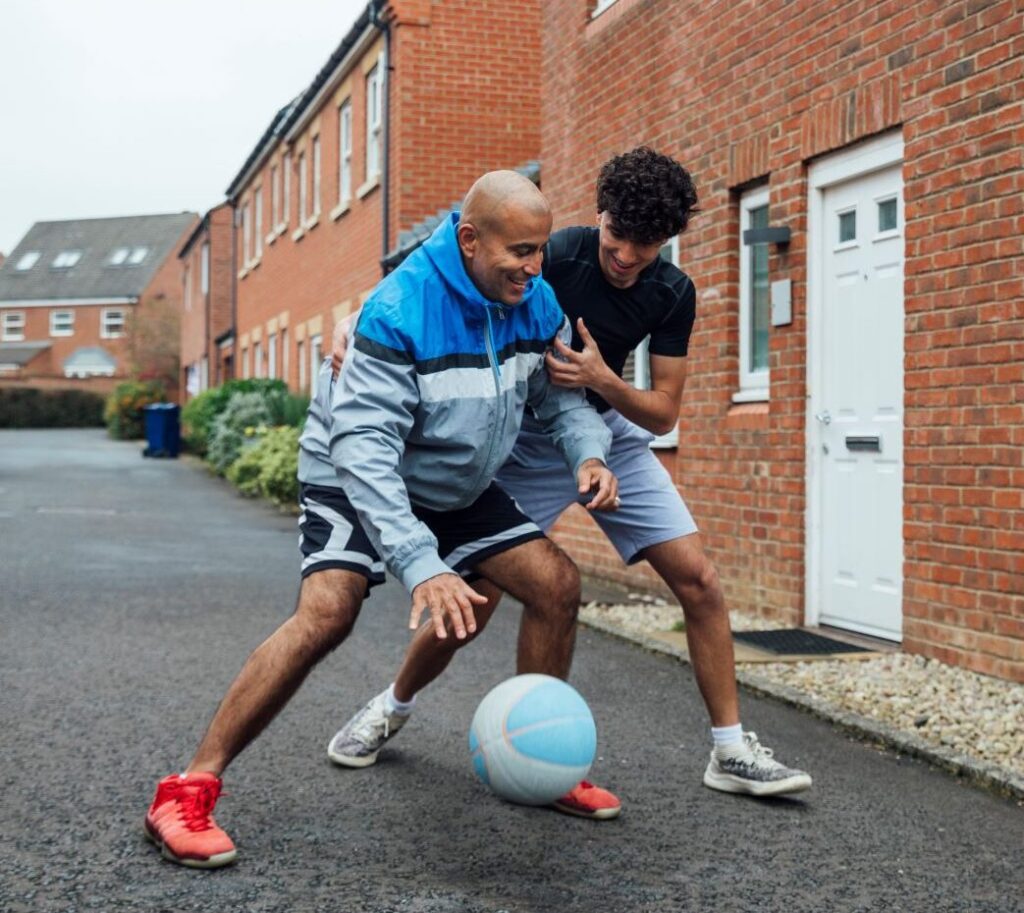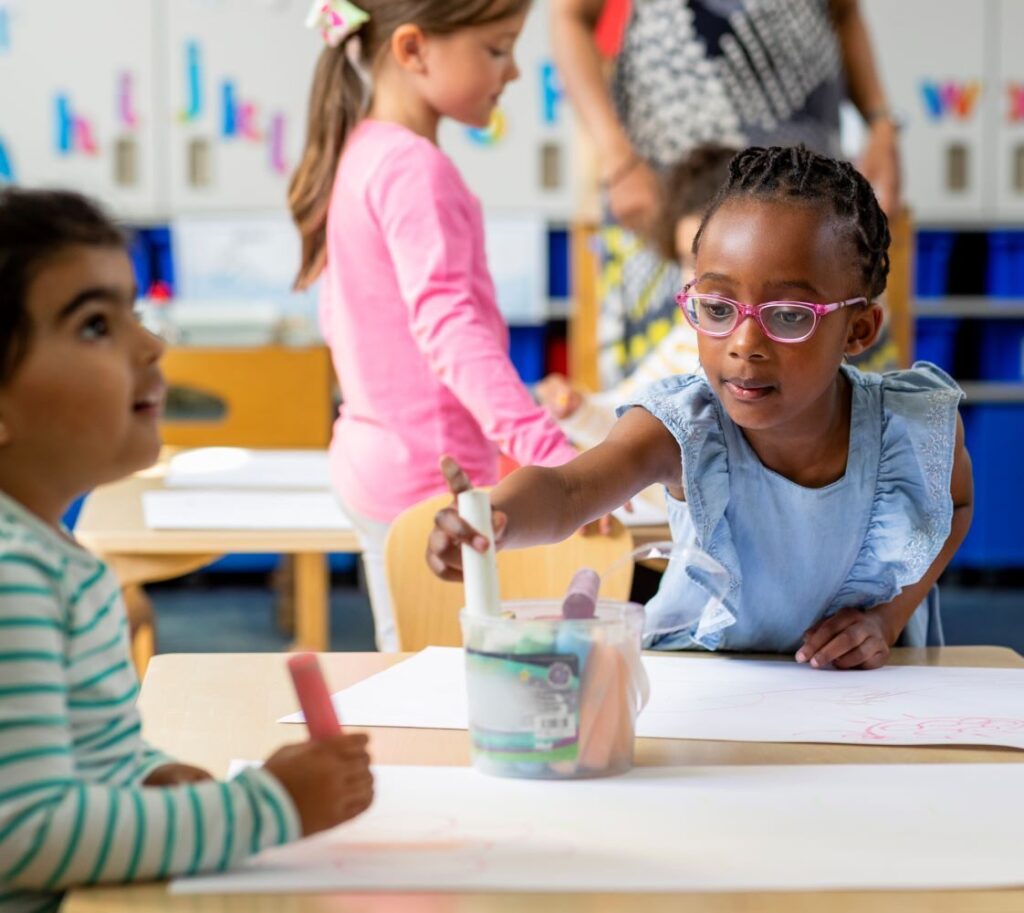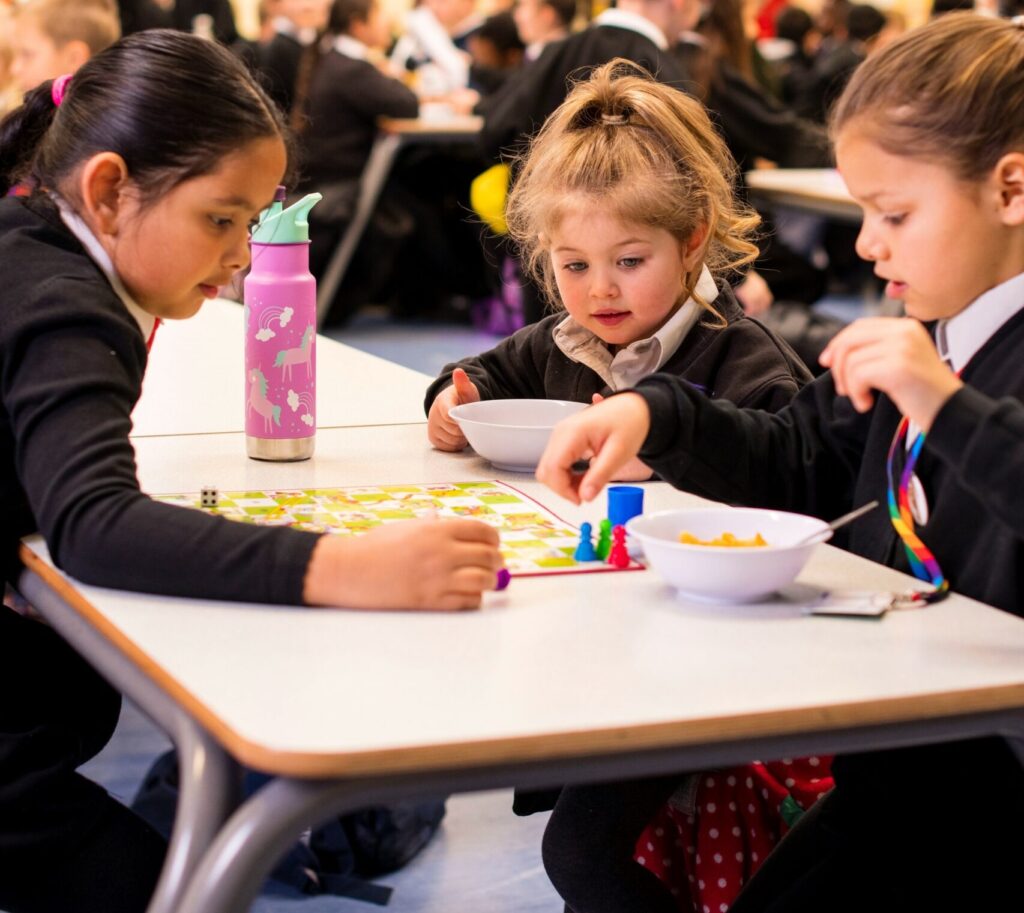We explore how play helps to bring families closer and create happy memories.
Take a minute to think about your most treasured childhood memory. Got it? Now…we’re willing to bet that, wherever that memory takes place, you’re not on your own during that happy moment and have family or friends around you. From discussions with our staff and families using our services we’ve found that, whether it’s a picnic, a trip to a special event, or simply a golden afternoon with our siblings spent in summer sunshine, playing with your child defines their childhood and memories.
There’s a reason why, if you visit our services, you’ll rarely see our staff on the sidelines. That’s because they know that a strong bond with the children they work with is essential to doing their job correctly, and the best way to develop that bond is through playing alongside them.
You’re kind of getting to know the children as you play, and we’ve found that doing so helps us to develop good, positive relationships.
There are lots of reasons why this is the case. Firstly, playing with your child is simply a matter of shared time. Playing is what children DO and so, if we want to take the time to know them better, it makes sense to engage them when they’re most absorbed in the moment. Meeting them on their terms also makes explicit your desire and commitment to them. It’s an ideal way to show you are engaging fully with them.
Play does that, and so much more.
Children want to feel wanted and loved, like their parents have time for them and they are important.
See the world through each other’s eyes
Parents and carers get the rare opportunity to see the world through their child’s eyes, experience the world as they do and find out what’s appealing to them. Many of us first discover our child’s love of sport, science, music or drama through play. And this cuts both ways – with children getting the chance to explore aspects of their parent’s lives through play that allow them to understand adulthood a bit better. This is something that, as our Child and Family Coordinator Rachel notes, children are often very enthusiastic about doing!
She said: “The “home corner” (where we set up a pretend kitchen etc.) provides children with the opportunity to roleplay what they have seen in the family home. This helps them to make sense of “their” world and gives them the opportunity to act out different roles.”
That’s why children tend to gravitate to the home corner initially. It’s a familiar space where they can try out these family roles, share feelings and express thoughts with other children and adults.
Communicate more with each other
Spending some time playing with your child also helps enhance communication on a range of levels – not just verbal, like asking what they are doing or why they’ve chosen that toy, but also visual through encouraging smiles and, most importantly, through the realm of sharing ideas.
As our Early Years Manager Karen says: “There’s a to and fro with play that involves a lot of communication and leads to an exchange of ideas.” These ideas allow us to reveal aspects of our personality that help us learn more about each other – that, for example, we’re conscientious because we want to clean up a spill, or kind because we want to address a cut knee.
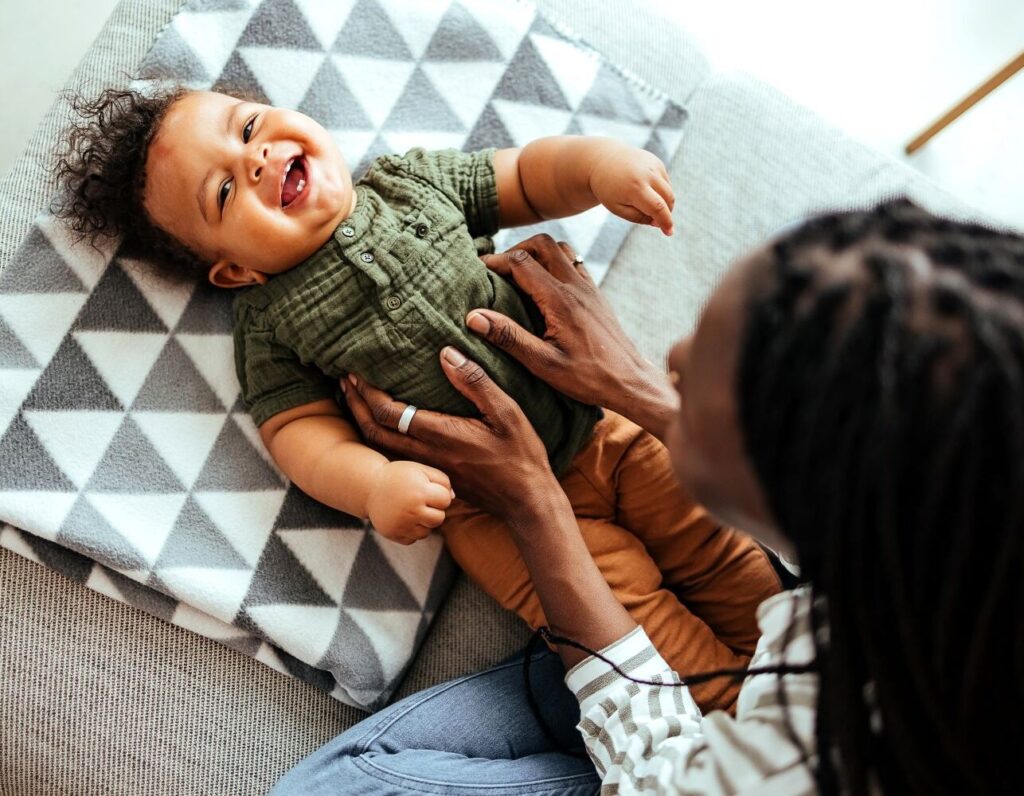
Those smiles and encouraging words help children bond with parents as, before school brings new educational targets and authority figures, the key people they are looking for acceptance and approval from is their parents.
Attachment theory highlights the importance of these parent-child relationships for healthy development. Even as babies we constantly seek interaction as we try and build our understanding of the world. Playing with your child helps build bonds even before they can speak, and indeed, play itself is thought to be vital for the development of language.
Bond through physical closeness
We’ve discussed how play helps us connect more deeply with our children through greater appreciation for their ‘world’ and increased communication. But play is also beneficial on a more physical level and there’s one sense – touch – that becomes even more vital in the home setting.
Play promotes physical closeness as we sit alongside our children, lift them onto the slide at the park or engage in imaginative play. This, again, promotes closeness through touch as doing so releases oxytocin. This is a hormone which promotes feelings of trust, devotion and bonding and reduces stress.
My kids still often talk now about things they did as children with their friends: the places they went and the happy memories they generated together. Even now, years later, those memories bring them joy
Create shared memories
All of the above combines to virtuous effect and, over time, produces another pleasing side effect that aids us in developing family bonds – that of shared memories. These shared memories give us touchstones that we can refer to time and again. Research shows that adolescents whose mothers engaged in regular open conversations about everyday past events with them as children reported lower levels of anxiety and depression.
As one parent told us: “My kids still often talk now about things they did as children with their friends: the places they went and the happy memories they generated together. Even now, years later, those memories bring them joy”. Making time for play can help gift our children with happy memories they’ll enjoy for a lifetime.
Of course, our role as parents and carers is only part of the puzzle. Play with the wider family gives parents and carers vital time off, as well as widening children’s support network. Grandparents in particular provide children with different perspectives, an alternative means to let off steam and help them develop self esteem. Our ambition is for the whole family to be able to enjoy play and the benefits it brings.
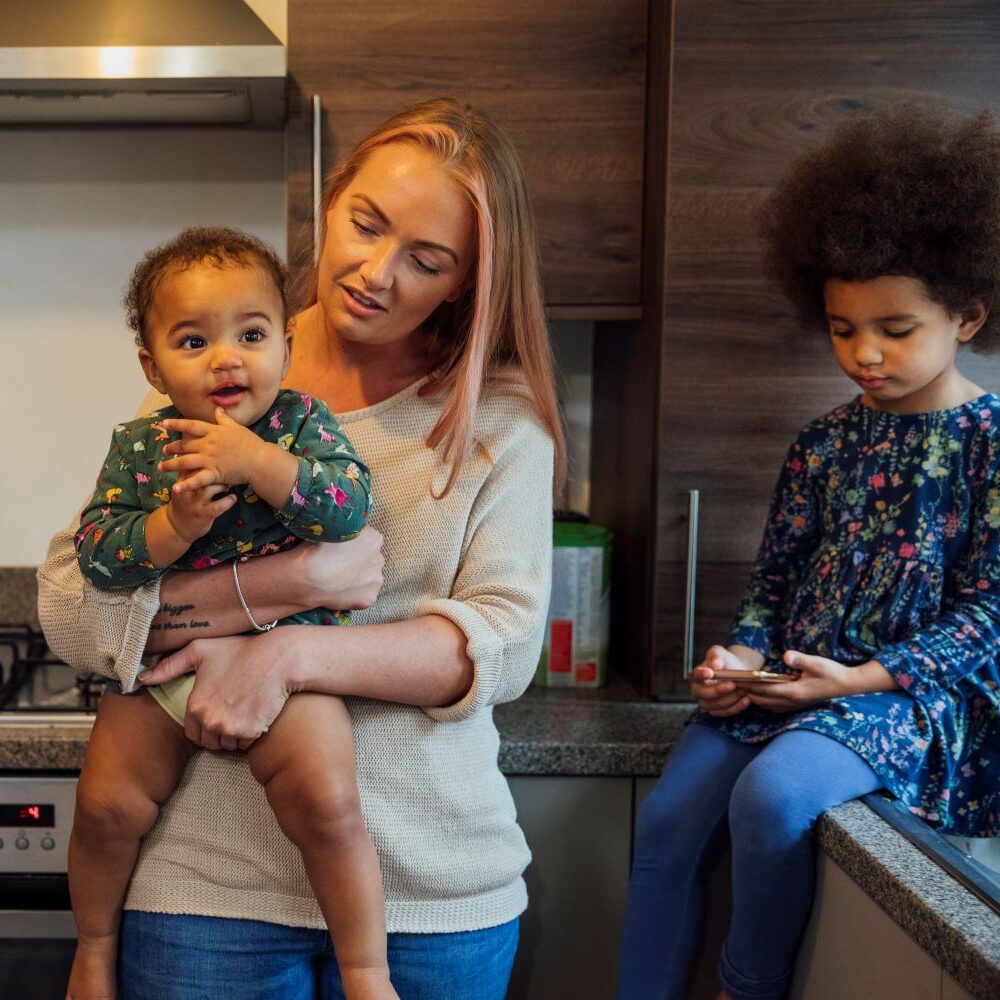
Call, text, email or web chat FamilyLine
If you’re feeling overwhelmed, worried or upset about any aspect of your family life, FamilyLine is here for you. We offer free emotional support and guidance on family relationships, conflict, parenting, caring, financial worries and more.
Contact FamilyLine